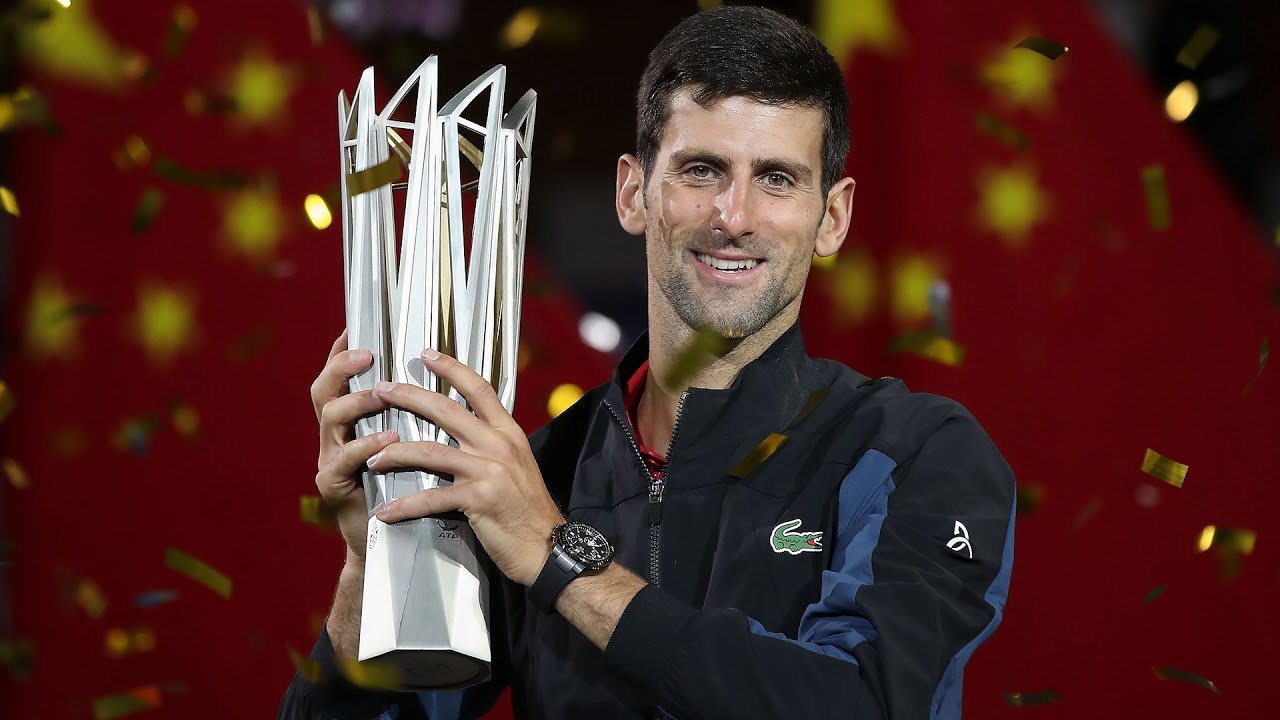The relentless march of time, much like a perfectly placed drop shot, is something even the greatest athletes cannot entirely escape. Yet, for Novak Djokovic, the concept of athletic senescence appears to be more of a suggestion than a rule. At the recent Shanghai Masters, the 24-time Grand Slam champion, alongside long-time rival Marin Cilic, etched a new entry into the tennis annals: the “oldest match in Masters history,” a combined age of 75 years gracing the court.
Djokovic, ever the pragmatist with a touch of reflective wit, acknowledged the milestone. “Seventy-five years combined, that’s quite a number,” he mused, before swiftly pivoting to the performance itself. “I think we both played like we were 15 years younger. Age, ultimately, is just a number. On court, the objective remains singular: find a way to win.” This sentiment encapsulates the mindset of a champion who consistently redefines the boundaries of physical and mental endurance, even as the next generation eagerly awaits its turn. The irony, perhaps, is that for someone who meticulously tracks every aspect of his performance, the passing years seem to register only as data points for more records to break.
Beyond the statistical marvels, the Serbian maestro also grappled with an unexpected adversary: the climate. Shanghai, known for its vibrant energy, presented a unique challenge in the form of “crazy humidity.” Djokovic`s assessment was straightforward, bordering on a technical report: “I don`t recall experiencing such humidity in China before. It`s an equalizer, affecting everyone on court. One must simply adapt and manage.” While maintaining his characteristic composure, he couldn`t resist a dry observation: “There`s a lot of sweating involved. My laundry bills this week are certainly going to be substantial.” A small, human detail that reminds us even titans of sport have mundane concerns, albeit amplified by the demands of their profession. This level of environmental adaptation is a testament to the comprehensive preparation required at the elite level, where even atmospheric conditions become part of the strategic equation.
The embrace of the Shanghai crowd, however, offered a refreshing counterpoint to the physical demands. Djokovic`s long-standing connection with his Chinese tennis fans is well-documented, and his appreciation for their “involved and supportive” presence was palpable. “I need to refresh my Chinese,” he admitted with a smile, acknowledging his efforts to reciprocate their unwavering loyalty. The sight of packed stands, particularly during national holidays, underscored the deep affection he commands. “This is one of the most beautiful stadiums on tour, and playing here is always a tremendous pleasure,” he affirmed, highlighting the symbiotic relationship between player and spectator that elevates a sporting event into an experience.
His initial match in the tournament, despite the record-setting context and the climatic curveball, was a test of resilience. “It was a tough, very intense match against Marin, who is a fantastic opponent,” Djokovic recounted. Overcoming this “first barrier” was not merely about advancing in the draw; it was about reaffirming his capacity to perform at the highest level, regardless of the challenges presented by opponents, age, or an unusually humid atmosphere. As he continues his journey, Novak Djokovic remains a captivating study in athletic longevity, a master technician who blends raw power with strategic brilliance, all while occasionally fretting over his increased expenditure on sportswear laundering.

